Reality TV can be pretty weird, even when you don’t include what Beetlejuice’s Lydia Deets would call “the strange and unusual.” Yet throughout the evolution of reality television, producers have turned to the paranormal, the supernatural, or the straight science fiction to draw in their viewers. Let’s face it—someone figured out that sci-fi and geekery are in vogue and suddenly, you can’t swing a hidden microphone without getting some nerd into your reality. So lets take a look at the five ways reality has embraced the paranormal and the geek.
Stories of the Paranormal
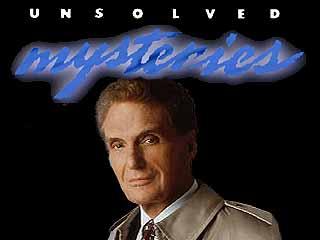 Reality television as we know it can trace its roots back to a number of early non-fiction television programs, like game shows and documentary programs. Those programs often cashed in on the fact that folks liked to get a good spook or two in their everyday life by pitching stories about the paranormal to their viewing audience. Two such programs were In Search Of with Leonard Nimoy and that old favorite, Unsolved Mysteries. Where In Search Of postulated all kinds of alternate pseudoscience theories, Unsolved Mysteries interviewed folks about their paranormal experiences. In between trying to capture heinous murderers on the loose, the show spun tales about the unexplainable for America to enjoy. The impact of these shows lingered into our modern reality-obsessed era when shows like Paranormal Witness, Extreme Paranormal, and Paranormal State could take over. Now folks can go hunting for Bigfoot or the Chupacabra, or watch the skies for aliens with experts in these fields.
Reality television as we know it can trace its roots back to a number of early non-fiction television programs, like game shows and documentary programs. Those programs often cashed in on the fact that folks liked to get a good spook or two in their everyday life by pitching stories about the paranormal to their viewing audience. Two such programs were In Search Of with Leonard Nimoy and that old favorite, Unsolved Mysteries. Where In Search Of postulated all kinds of alternate pseudoscience theories, Unsolved Mysteries interviewed folks about their paranormal experiences. In between trying to capture heinous murderers on the loose, the show spun tales about the unexplainable for America to enjoy. The impact of these shows lingered into our modern reality-obsessed era when shows like Paranormal Witness, Extreme Paranormal, and Paranormal State could take over. Now folks can go hunting for Bigfoot or the Chupacabra, or watch the skies for aliens with experts in these fields.
I Ain’t Afraid Of No Ghosts—Ghost Hunting Television
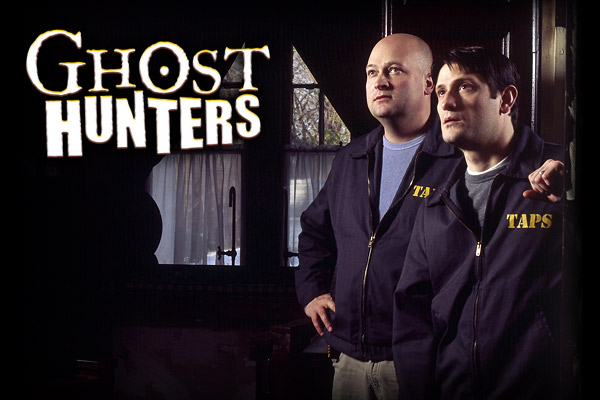
Go back as far as you like and you’ll find people fascinated with ghost stories. It stands to reason, then, that when reality television started to get popular, execs would find a way to bring the tales of the dead to life. Enter the whole genre of ghost hunting and haunted house investigations. Ghost Hunters premiered on Syfy in 2004 and followed paranormal investigators Jason Hawes and Grant Wilson as they checked out supposedly haunted locations with their TAPS team. The show enjoyed nine seasons and spawned a bevy of copycats like America’s Haunted Hotels, Most Haunted and Haunted History on the History Channel. Though these shows have been going on for nearly a decade now, there seems to be no end to their popularity, and they’ve been parodied in everything from film to television shows like Supernatural.
Powers of the Mind—Psychics and Mediums Galore
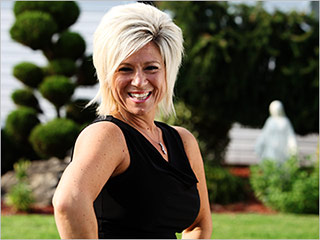
If you haven’t already gotten a heaping helping of the dead in your life from those haunted shows, television shows about mediums brings the practice of speaking to the deceased into your living room. Shows like this became popular with the show Crossing Over With John Edward in 1999, where Edward would try to commune with the dead to give audience members messages. The more modern Long Island Medium features Hicksville native Theresa Caputo, who claims to pass messages from the dead to bereaved folks who seek her out. Where Edward was a more straight-forward show set in a studio, Caputo spends her time balancing her family life with time with her clients. Whether or not you believe in the ability of someone to channel the dead from their dining room table decides whether this show is a case of fact or fiction.
Should Caputo’s mind powers not be enough for the viewing audience, there’s always a heaping pile of shows about other psychics. Especially popular is the psychic detective: there’s Psychic Detectives on Court TV, Psychic Witness on Discovery Channel, and Psychic Investigators on Biography. Each of these takes the stories of real cases and real psychics who use their powers to help solve crimes, a reality that many would consider straight science fiction.
Geek TV—King of the Nerds and Comic Book Guys
Once you’ve tired of paranormal crime-solving, we’ve got a gameshow about who is the nerdiest of them all. King of the Nerds brings together folks from across the spectrum of nerd-interests to test them on just who is the most nerdy. This elimination challenge game has contestants craft cosplay costumes and battle with Nerf gun, competing in “Nerd-Offs” to knock others out of the game. This show not only embraces nerd culture, but practically jumps up and down about it, highlighting the many fandoms that nerds enjoy.
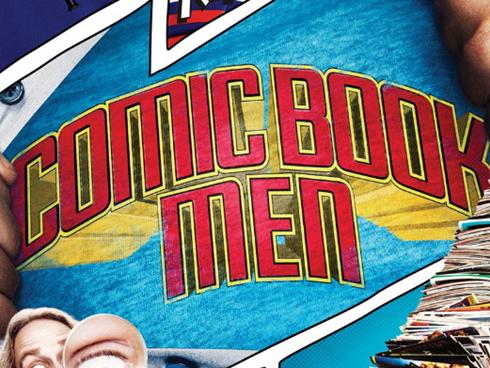
What could possibly be more geeky than a show about nerds in action? Why, comic nerds in action! Two reality shows took audiences into the world of comic book retail and embraced the love fans have for their fictional worlds. First was Kevin Smith’s Comic Book Men on AMC, a Pawn Star-like show set in Smith’s New Jersey comic shop, Jay and Silent Bob’s Secret Stash. The show revolves around a steady diet of nerd culture and the antics of those in the comic shop. Similarly, Comic Store Heroes on National Geographic follows the staff of New York’s Midtown Comics on their everyday work adventures. Though both shows aimed to cash in on the geek chic vogue going on right now, their target audience was much narrower than the broader set King of the Nerds might attract.
Behind the Sci-Fi—Special Effects Shows
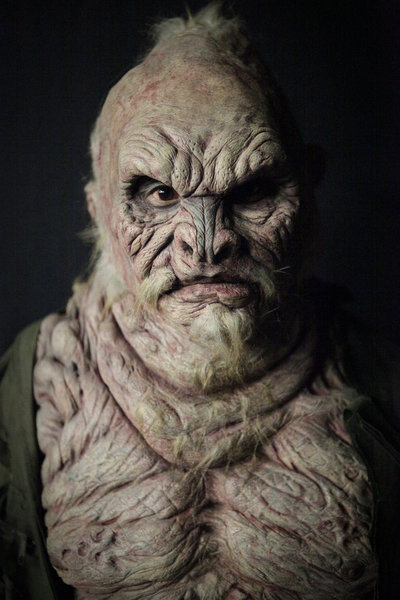
Ever wondered how your favorite science fiction television or movies make their FX come to life? Well Face Off is here to show you how its done. The Syfy competition series brought together aspiring make-up and special effects designers to show off their talents every week. The challenges set up had the contestants creating movie monsters and costumes based on a theme, with a guest judge brought in to decide who had interpreted the challenge best. From zombies to costumes inspired by Tim Burton to alien creations based on the Syfy show Defiance, Face Off has had four seasons of creature-feature madness. Plus you get all the backstabbing, conniving and emotional drama one expects from a competition show on top of all the gorgeous costume creations!
These are only some of the examples of reality television blurring the lines between the real and the fiction. For every show that might try to showcase more mundane reality there are those asking audience members to believe in a little paranormal or get behind the scenes in geek culture and industry. But what happens when television takes the next step and asks us to accept reality TV without any of the fiction?
BONUS: When Reality isn’t Real But is Still Spooky
It wouldn’t be an article on reality TV shows if you didn’t talk about the category called scripted reality. Anyone who watches reality TV knows that a lot of things are staged for the cameras. Yet some shows come right out and follow the proud tradition of found footage films and television to create a scripted reality show. These fictional shows may look like reality TV but are entirely staged. Since reality television already has a heaping helping of the paranormal, it stands as no surprise that these shows can do the same.
A good historical example is a television show called Ghostwatch from the UK that aired back in 1992. This mockumentary about a haunting did such a good job convincing the audience that they were watching reality that the BBC switchboard lit up with more than 300,000 calls during the broadcast.
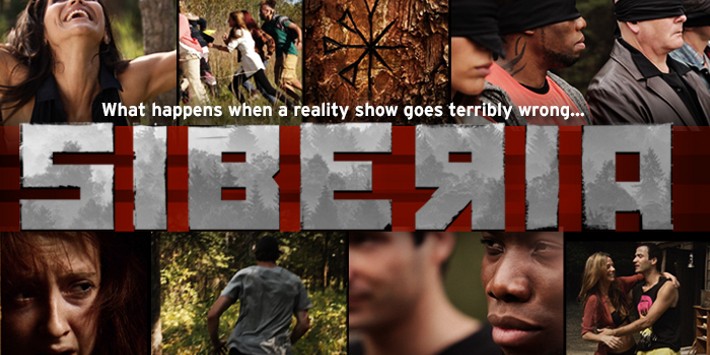
Today by comparison we have NBC’s new scripted reality show, Siberia. This new Monday night offering follows a group of Survivor-like reality show contestants dropped into the middle of Siberia, competing for five hundred thousand dollars. All they have to do is survive a Siberian winter in a tiny abandoned forest town. Sound hard? It would be a lot easier if weird stuff wasn’t going on out in the forest too. Since its announcement, the show has made no bones about the fact that its not a real reality program. Its website and all the press around the show talk about the fact that its reality fiction. Its stars are all over Twitter every Monday night when it airs, engaging with the fans and reminding folks that the whole show is scripted. Yet viewers online have been responding to Siberia as if it were a real reality show, even after the first episode has a cast member killed by (presumably) some horrible monster or weird mutated human or whatever weird woogedy is going on in the forest. The reactions smack of the old anecdotes about people freaking out about the War of the Worlds radio broadcast in 1938, when Americans believed aliens were invading our shores because of a radio play by Orson Welles. Reality has seemingly become so malleable that viewers can’t tell just what is reality and what isn’t—but viewers can sure tell its got a load of science fiction mixed in.
Siberia is really fun television, one step up from most reality shows because of decent characters and an interesting premise. Its also refreshing to be able to appreciate the reality show spectacle without producers trying to convince the audience that what they’re seeing is real. So tune in if you like some Lost tossed into your Survivor. Just don’t forget though, this isn’t reality… if any reality television ever was.
Shoshana Kessock is a comics fan, photographer, game developer, LARPer and all around geek girl. She’s the creator of Phoenix Outlaw Productions and ReImaginedReality.com.










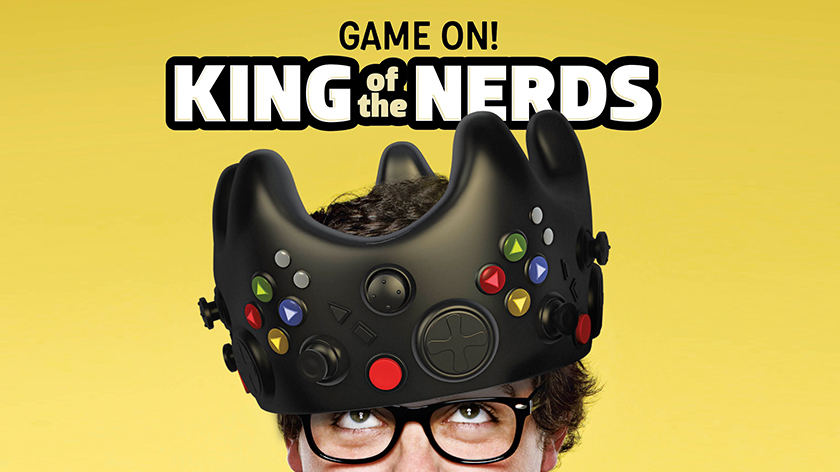
I tried that Comic Book Guys, but the one bearded guy who doesn’t even work there, just hangs out, he drove me away halfway into the 2nd episode.
I can accept that he was the part of the “heel” but I have to feel that the audience isn’t supposed to side with him, and while he was an ass, I just kinda felt like you were supposed to be poking fun at Ming, the Asian guy he torments all the time too, not on Ming’s side.
Though I loved that older guy at the flea market who started cussing him out for messing with Ming’s booth. Of course, he was an ass to him too.